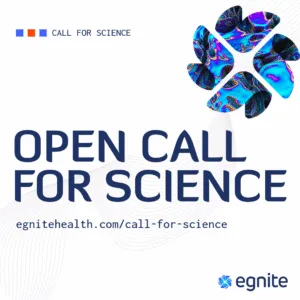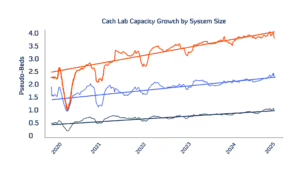egnite, Inc. Unveils Research on Mitral Regurgitation at Transcatheter Cardiovascular Therapeutics Conference 2023
Led by Rahul Sharma MBBS, FRACP, and Colleagues, Findings Presented Today at the TCT Conference
Key Findings Demonstrate Patients with Moderate-to-Severe Mitral Regurgitation are 3 Times Less Likely to be Treated Than Patients with Severe Mitral Regurgitation Despite Similar Untreated Mortality.
ALISO VIEJO, Calif. – October 25, 2023 – egnite, Inc., a leading cardiovascular digital health company, announced today that novel research on mitral regurgitation (MR) was presented by cardiologist Rahul Sharma, MBBS, FRACP, at the Transcatheter Cardiovascular Therapeutics (TCT) conference.
The study, the second presentation of egnite’s data at TCT, leveraged egnite’s de-identified real-world database of over one million patients across 25 teaching and non-teaching US health systems. These findings unveiled critical insights into treatment patterns and associated outcomes in patients with MR.
Key findings demonstrated:
- Patients with moderate-to-severe MR and severe MR exhibit similar untreated mortality, with untreated 2-year mortality rates at 30.2% and 31.8%, respectively
- Moderate-to-severe MR is 3 times less likely to be treated than severe MR, indicated by 2-year interventional treatment rates at 13.5% and 46.4%, respectively
Sharma, Director of Structural Interventions, Associate Director of the Cardiac Catheterization Laboratory, and Associate Professor of Medicine, emphasized, “These findings underscore the urgency of early intervention for patients with MR. The implications of delayed treatment, particularly in moderate-to-severe MR, cannot be overstated, as it may lead to poor patient outcomes.”
Further analyses by type of severe MR (primary, secondary, and mixed MR) reveal varying intervention and mortality rates, underscoring the importance of individualized treatment approaches.
This research represents one of the largest real-world analyses of treatment patterns and associated outcomes for patients with MR and highlights the importance of timely intervention. egnite continues to be at the forefront of real-world insights in cardiovascular care.
About egnite, Inc.
egnite is a visionary digital health company committed to advancing the health of our society through innovative cardiovascular solutions. egnite uses AI-driven algorithms and big data to produce business intelligence for healthcare, elevating the role of data in critical decisions. The company, based in Aliso Viejo, California, partners with leading hospitals and life sciences organizations to transform care delivery for cardiovascular patients. For more information, visit www.egnitehealth.com.



